columns
Tuesday RapAround: Lagos And The Otodo-Gbame Debacle

Lagos And The Otodo-Gbame Debacle By Michael Ayotunde
Ideally, government is supposed to exist just because of the people.
It is only a matter of rational disposition for the former to be in place so as to ensure orderliness, peaceful co-existence and genuine survival of the people in the society.
But where the well-being of the people, people who mostly are the down-trodden, people that basically are usually at the receiving end of untold societal ills and unbalance occasioned by long years of miss-steps and maladministration by visionless and self-centred accidental leaders, it calls for serious concern and caution.
Otodo-Gbame, a waterfront community in Lekki, Eti-Osa local government area of Lagos State, is one of the several communities that have been left stark naked. This was after Lagos State Government’s machines went for the kill in the poor waterfront community and after the exercise, the sprawling community is now a shadow of itself.
Although it is unclear as to what led to the fire incidence in the community sometimes ago, an eyewitnesses was reported to have said that police officers that were present did not attempt to put out the fire. Instead, the people were chased away by the police officers when they attempted to put out the fire.
On why such wanton destruction was allowed to go on unchecked is a poser for another day. After the fire stopped in the afternoon, the police and a demolition team returned overnight with a bulldozer. Eyewitnesses say that the police then started the fire again, forcibly evicting thousands from their homes. At no point were fire-fighters seen.
At the end of the unfortunate drama, thousands of residents of Otodo Gbame watched in horror as their homes and possessions were destroyed literally overnight, and their futures plunged into uncertainty. What makes this especially shocking is that the community was said to have been granted an injunction preventing the Lagos State Government from proceeding with the planned demolition of the informal settlements along the State’s waterfronts.
One may be tempted to ask why would a government that is meant to serve, protect and provide for its citizens would choose to go the extra length to expose the same people it is meant to serve to danger and public ridicule – not minding the infants among them, the nursing mothers, aged ones, and sadly, without any option for relocation or resettlement?
There is no questioning the fact that there have to be development, at least, for the society to move forward and keep pace with modern trend the world over. Also, we cannot shy away from the fact that some people (both in urban and rural areas) are known to be at variance with modern development. In fact, they are inherently opposed to transformation. They are so used to living comfortably with stench, shanties and all kinds of defacement. But that is not to say these people deserve the inhuman treatment which the state government has meted out to them.
There should definitely be a more civilised way to carry them along with whatever transformation that is taking place in the state without having to resort to crude and archaic method. They are human being, after all just like those in government house.
Where the government got it wrong is – these people did not just fall down from heaven. They are, indeed, products of long years of misrule, miss-governance, and outright abandonment. The situation is just a reflection of a failed governance system in Nigeria. That is, failure of successive administrations and their lack of planning and foresight to actually plan for the people. It is stark testimony to the fact that there is still nothing to show for the stupendous wealth Nigeria has amassed in her 57 years of independence. As it stands now, few are getting richer, while majority are getting poorer.
The government we have in Nigeria is the government of elitists, by the elitists and for the elitists. There is practically no provision and or consideration for the common man – the class of people they usually returned to when it is time to canvass for votes.
There are clearly certain class of people that government should ideally take-over their upkeep in the society. But when these hapless, defenceless people who are without any choice in life, are now made to face government’s sledge hammer, it sure leaves one’s sense of reasoning to be flogged with ceaseless and uncountable questions – questions that may never get corresponding answers till Christ comes.
There is wholesale chaos in the community, a place where fishing is their major source of livelihood. Mothers have their children and husbands missing, fathers can no longer cater for their children and everything seems lopsided in the community.
To this end, reports have it that more than two million people have been forcibly evicted from their homes in different parts of Nigeria since 2000. These evictions, accordingly, are carried out without adequate consultation, prior notices and compensation or alternative accommodation. Most were already marginalized and many had lived for years without access to portable water, quality sanitation, modern healthcare facilities and or education.
Nigeria, like other nations of the world, is a signatory to several international conventions and treaties, and other international and regional human rights treaties, which require it to realize the right to adequate housing, and to prevent and refrain from carrying out forced evictions.
Of what relevance and purpose is the drive to develop a state without its people? When the state is fully developed, are they planning to go and hire foreigners to live in it.
Nowhere is the wealth gap so apparent than on the Lagos Banana Island, a patch of reclaimed land that analysts claimed was not in existence about 10 to 15 years ago, but now, it has suddenly become a choice area, a toast of the town where guards now control access and multi-million-dollar compounds glimmer with gold decor on the gates and peacocks parading on the grass outside.
At different fora, the state government has not been found wanting in its claim that Otodo Gbame and other waterfront communities are a recent, temporary settlement. People of these areas, however, have denied such claims, with some of them saying they have lived in the neighbourhood for close to 35 years.
In a statement signed by the state’s Commissioner for Information and Strategy, Mr. Steve Ayorinde, the government said the state’s Ministry of Environment’s action was to forestall an environmental disaster and another round of deadly skirmishes that led to the razing of the community back in November 2016.
As good as the reasons posted by the honourable commissioner may sound, where in the whole episode did government ever spare a thought for these hapless and defenceless people – with infants, aged among others? Why is it usually difficult for government and its agencies, officials applying human face when it comes to executing policies, especially those with damning consequences?
As a potent way of measuring their conscience and integrity, can same demolition exercise be carried out few days, weeks and or months to any elections? If no, that means the type of governments/administrations that we have in Nigeria is full of deceit, lies, injustice and sheer wickedness.
As much as the administration of Mr. Akinwumi Ambode may have received commendations from across the state for outstanding performance in some areas, the case with Otodo-Gbane is certainly not in good taste, and such inhuman treatment to the people of the area should be condemned by all right thinking individuals.
Government is meant to be for the people. Certainly not against the people.
-

 News4 days ago
News4 days agoCapacity Building: OHIS Organizes Retreat For New Board Members
-

 News3 days ago
News3 days agoFamily Of Gruesomely Murdered Pastor Cries For Justice
-

 News2 days ago
News2 days agoJust In: Nigerian Governor Dethrones 15 Traditional Rulers, Reinstates 7
-

 News3 days ago
News3 days agoTinubu Appoints Consuls-General, Chargè D’ Affairs For 13 Countries


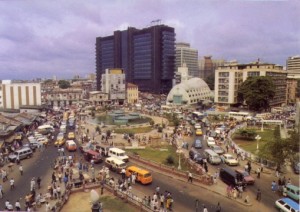
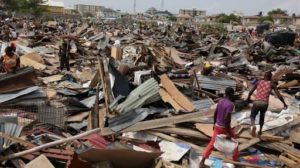



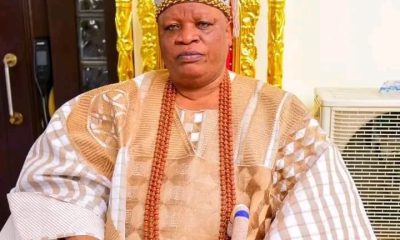

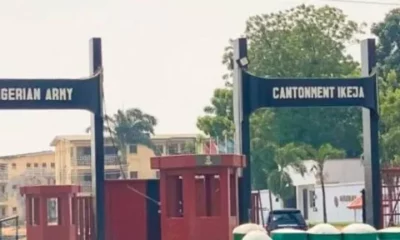

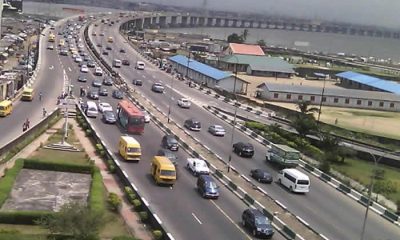






1 Comment